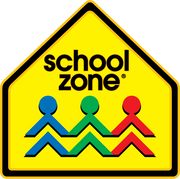The journey to doing algebra, managing money, or even baking a chocolate cake from scratch begins with 1-10. Little numbers grow into big things. And the more we make numbers and counting fun in the early years, the more likely that math mastery is in the cards for kids.
Math skills rock and numbers rule
In education, authentic learning is a term that refers to connecting what we learn to real-world situations. It relates to learning by doing. A lot of us may have sat in algebra class asking ourselves, "When am I ever going to use this?" but no one can deny that numbers play an everyday role in our lives and decisions. Early Greek philosopher and mathematician Pythagoras proclaimed that "Numbers rule the universe."

Math proficiency scores in the U.S. have ticked up a bit in recent years. In 2018 a Texas Instruments Education Technology Survey of 1,000 students "found that 46 percent love or really like math, nearly twice as many than those that said they didn't like it." Our attitude toward math and whether we think we are a "math person" starts early—during the 1,2,3s.
We take for granted when and how kids learn to count, but counting skills have many mile markers. Counting with meaning is different than counting from memory. Saying numbers is different than relating them to objects. Understanding the meaning of numbers comes with plenty of practice and experience that builds connections.
Show them how numbers work in the real world

Help your child learn to count by making it part of everyday routines. Folding laundry? Ask them to count washcloths with you. Serving dinner? How many peas do they need to eat? Are they coloring? How many crayons are they using to color a picture? Ask them to count their toys, their snacks, or the fish in an aquarium at the dentist's office!
Counting "moves" or spaces in a board game is a great way to build connections. So is using a calendar to count the days left until a birthday, trip, or other special occasion.
In the kitchen, have kids help set the table. Count out 5 napkins, forks, spoons, and butter knives, and ask them to count them again as they lay them next to the plates. Ask them how many they would need to add if the next-door neighbors came for dinner. Or how many they will take away if sister's hockey practice makes her late for dinner.
If you are using nuts or other small, solid ingredients, start a few different small, countable groupings of them. Ask your child to count them out loud. Which has more? Which has less? Move them around within the group and show them the number stays the same.
Turn errands around town into a number scavenger hunt. Try counting steps as you walk up or down them. How many cats, dogs, or pick-up trucks can your child spot?
Find playful tools that develop early counting skills


Discover Counting 1-10 Workbook and from singing turtles to buzzing bees, counting seashells by the seashore is, well, a breeze.
Or take a different path with the Connect the Dots Preschool Workbook. Not only do kids practice counting, but they get to color the adorable scenes they make from a sledding bear cub duo to an aviator alligator.

The Count 2 Play Android app is also available on the Anywhere Teacher online learning program along with many other counting apps and activities. Choose the right number of critters and launch a wild rhyming game such as Goats Rowing Boats or Ants Wearing Pants.

For huge flash card fun for little learners, the Preschool Flash Cards 4-Pack (Colors, Shapes & More, Numbers 0-25, Old Maid Numbers, and Numbers, Colors & Shapes.) They introduce essential readiness skills like counting, matching, and identifying shapes and colors. Do speed drills, play games, change it up. Take them anywhere!

Something as simple and inexpensive as a pack of Numbers 1-100 Flash Cards can develop number literacy skills. Use them to help preschoolers and kindergartners count and name lower numbers and then bigger ones. You can also use them to help kids understand the difference between even and odd numbers or to practice skip counting by 5s or 10s.
Or use the flash cards to play a basic numerical order game, using fewer or more cards, depending on your child's age or counting abilities. Shuffle the cards and scatter them frontside up. The first player selects the number 1 card, says the number, and starts a discard pile. The next player chooses 2 and so on. A player who makes a mistake loses their turn. Play to 20, 50, or 100, again, depending on where counting skills are. For a more advanced challenge, ask kids to count the cards by 5s or 10s. This is called skip counting.
Make numbers fun, and it will add up to a stronger math mindset. You can count on it!












